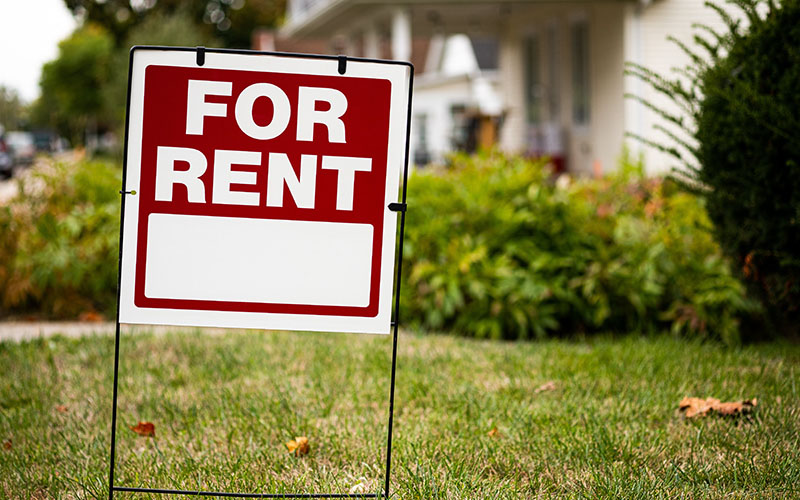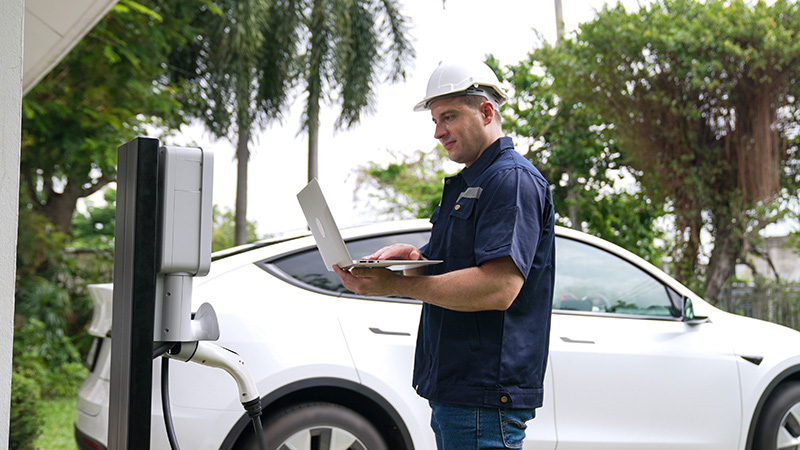Residents of homeowners associations may be all too familiar with HOA rules. These rules aim to maintain peace and order within the community and ensure consistency in appearances. Homeowners are obligated to follow them, while board members are responsible for enforcing them.
What Are HOA Rules?
Homeowners association rules and regulations are the restrictions that residents must follow when living in an HOA-managed community. These rules are created to maintain order, protect property values, and ensure the community looks and functions as intended.
The rules for a community are outlined in the bylaws, declaration, articles of incorporation, rules and regulations, and/or resolutions, referred to as the governing documents. The HOA usually supplies a copy of these documents upon purchase of a home. Existing owners can request a copy by approaching their HOA board or manager. Sometimes, an HOA will also provide access to these documents through a website or online portal.
Governing Documents: What Are They?
The Declaration of Covenants, Conditions, and Restrictions (may be referred to as the declaration or CC&Rs) is the primary governing document, outlining property use restrictions, architectural guidelines, and other relevant provisions. Associations must record the CC&Rs with the county and vote on any amendments.
The bylaws of an HOA outline the procedures for governing the association. This document outlines the board’s operating procedures, election procedures, meeting requirements, and voting rights. As with the CC&Rs, bylaws often require recordation and a vote for amendments.
Finally, the rules, regulations, and resolutions are the day-to-day policies of the HOA. These can cover everything from parking rules and pet restrictions to noise limits and regulations governing the use of amenities. Unlike the CC&Rs and bylaws, the operating rules don’t need to be recorded. Furthermore, changing the rules usually only requires a board resolution.
While operating rules and CC&Rs differ in many ways, they also share similarities. Both cover what homeowners can and can’t do with their properties and within the community.
Examples of Homeowners Association Rules

Homeowners associations can have differing rules, depending on their needs and type. Some common examples of HOA rules include:
- Property Maintenance. Homeowners should maintain exterior appearance, keep yards clean, and mow lawns regularly.
- Architectural Standards. These rules are in place to maintain consistency and uniformity within the neighborhood.
- Common Area Use. These rules dictate how homeowners can and should use common areas. They can also cover operating hours.
- Noise Restrictions. Homeowners must refrain from making excessive noise, especially during quiet hours.
- Parking Rules. These dictate where and how homeowners can park their vehicles.
- Guest Policies. These rules can cover the number of guests owners are allowed to bring, where they can park, and the expected behavior of guests.
- Holiday Decoration Rules. Homeowners must only decorate their homes within certain periods of time. They must not use loud, obscene, or offensive decorations.
- Pet Policies. Some HOAs have a strict no-pets policy, while others regulate the type, number, and size of the pets.
- Rental Restrictions. Many HOAs prohibit short-term rentals or place restrictions on them.
Penalties for Violating HOA Rules and Regulations
Homeowners must adhere to the community’s rules. Violations can lead to a number of potential penalties, depending on state laws and the governing documents, such as:
- Fines. This is the most common enforcement strategy employed by HOAs. Fines are intended to deter owners from breaching the rules, but not all associations have the authority to impose them. In Virginia, this authority is covered by Section 55.1-1819.
- Suspension of Privileges. Many HOAs temporarily revoke a member’s privileges or rights until they remedy the violation. This includes blocking access to amenities and suspending voting rights.
- Liens. In some cases, an HOA may be able to place a lien on an owner’s home if they don’t pay the fines resulting from violations.
Homeowners associations in Virginia must follow notice and hearing requirements before levying penalties. According to Section 55.1-1819, HOAs must provide homeowners with a reasonable opportunity to remedy the violation after issuing written notice. If the owner fails to correct the violation, the HOA must allow them to be heard.
The HOA must deliver a notice of this hearing, which should include the penalties that the association may charge. Delivery must take place at least 14 days before the hearing, either by hand delivery or via mail with a return receipt.
Can You Change HOA Guidelines?
Board members can change the operating rules through a board vote and resolution. Homeowners, on the other hand, can influence the board’s decisions by speaking up. If owners wish to propose a rule change, they should approach the board with their concerns or express their opinions at an open board meeting.
Homeowners association guidelines exist to maintain order, curb appeal, and property values. Before calling for a rule change, homeowners should first consider how the rule affects their quality of life. Just because an owner disagrees with a rule or wants to be an exception does not give them a good reason to request a change.
Unenforceable HOA Rules in Virginia
According to Virginia laws, there are some rules or prohibitions that HOAs can’t enact. Here is a quick breakdown of these unenforceable HOA rules.
Rental of Lots (Section 55.1-1806)

An HOA cannot stop a homeowner from renting out their property unless the law or declaration allows it. It also cannot charge more than $50 per lease for processing, require the use of HOA-drafted leases, collect deposits, or evict tenants.
Display of the U.S. Flag (Section 55.1-1820)
Following the federal Freedom to Display the American Flag Act, an HOA cannot ban a homeowner from displaying the U.S. flag on property they own or have exclusive rights to use. That said, the HOA may set reasonable rules about the flag’s size, location, duration, and manner of display. HOAs can also restrict flag displays in shared or common areas.
Installation of Solar Energy Devices (Section 55.1-1820.1)
Virginia law allows homeowners to install solar energy collection devices on their own property unless the HOA’s recorded declaration specifically prohibits it. The HOA can create reasonable rules regarding the size, location, and installation method; however, these rules must not increase installation costs by more than 5% or reduce energy output by more than 10%.
Home-Based Businesses (Section 55.1-1821)
In Virginia, an HOA cannot ban a homeowner from operating a home-based business within their personal residence unless the declaration states otherwise. However, the HOA can create reasonable rules about when and how the business operates, including limits on business-related signs. All home-based businesses must also follow local laws.
Use of For Sale Signs (Section 55.1-1822)
An HOA cannot require homeowners to use a specific “for sale” sign, such as an HOA-branded sign or one that doesn’t meet Real Estate Board standards. Still, the HOA may ban signs in common areas and set reasonable rules about real estate signs on private lots.
Electric Vehicle Charging Stations (Section 55.1-1823.1)

Homeowners associations cannot stop a homeowner from installing an electric vehicle charging station for personal use on their property, unless the declaration or other recorded rules say otherwise. Again, the HOA can set reasonable rules. These rules can cover the number of charging stations that can be installed, as well as their size, location, and installation method.
Additionally, the HOA may ban or limit charging stations in common areas. Boards can also regulate the manner of installation in these areas.
Consistent Enforcement
Homeowners might not always agree with HOA rules, but it’s clear that these rules serve an essential purpose. Board members must enforce these rules fairly and consistently or risk calling their validity into question.
National Realty Partners is a leading provider of HOA management services in Virginia. We help communities thrive. Call us today at 703-435-3800 or request a proposal online to get started!
RELATED ARTICLES:
- Breaking Down Virginia HOA Laws
- What Is The Virginia Property Owners Association Act?
- Condo Repair And Maintenance Guide: Who’s Responsible?
